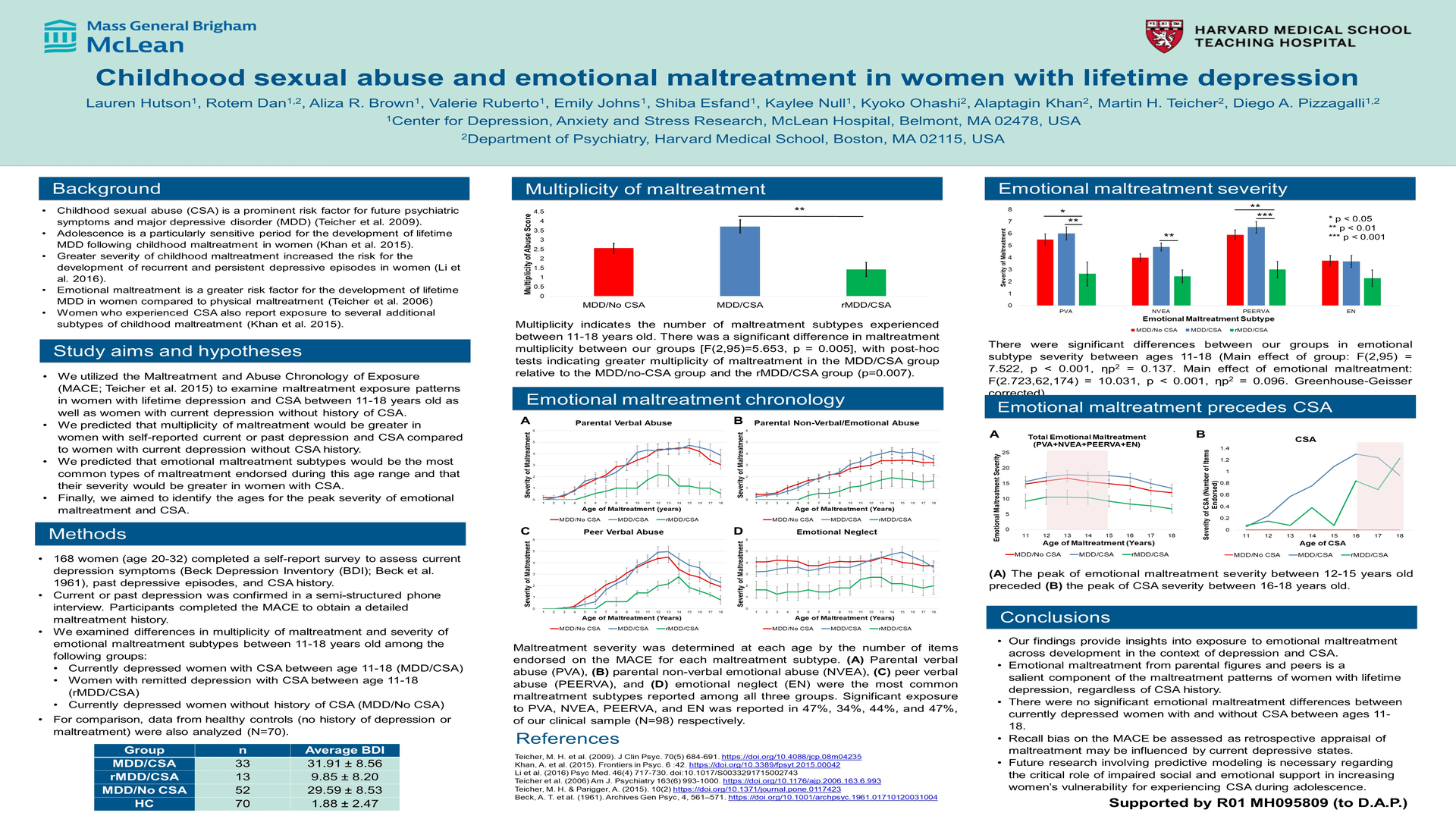Scientific Abstract
Background Childhood sexual abuse (CSA) is a prominent risk factor for the development of major depressive disorder (MDD). Women who experience CSA report exposure to several other maltreatment subtypes. We utilized the Maltreatment and Abuse Chronology of Exposure (MACE) (Teicher et al. 2015) to examine maltreatment exposure patterns in the context of lifetime MDD and CSA. We predicted greater multiplicity of maltreatment and severity of emotional maltreatment in women with lifetime MDD and CSA history. We also aimed to identify the ages of peak severity of emotional maltreatment and CSA.
Methods 168 women (age 20-32) self-reported current depression, past depression, and CSA history. Current or past depression was confirmed in a semi-structured phone interview. Participants completed the MACE to obtain a detailed maltreatment history. We examined differences in multiplicity of maltreatment and severity of emotional maltreatment among currently depressed women with CSA between age 11-18 (MDD/CSA) (N=33), women with remitted depression and CSA between age 11-18 (rMDD/CSA) (N=13), and currently depressed women with no history of CSA (MDD/No CSA) (N=52).
Results MDD/CSA women reported higher multiplicity of abuse between age 11-18 than rMDD/CSA women [F(2,95)=5.653, p=0.005]. Parental verbal and non-verbal abuse, peer emotional abuse, and emotional neglect were the most common maltreatment subtypes reported across groups. Emotional maltreatment severity differed between groups (Main effect of group: F(2,95)=7.522, p<0.001, ηp2=0.137.). Peak emotional maltreatment severity between age 12-15 preceded peak of CSA timing between age 16-18.
Conclusion Our findings provide insights into exposure to emotional maltreatment in the context of depression and CSA. Emotional maltreatment is a salient component of maltreatment patterns of women with current depression, regardless of CSA history. Future research involving predictive modeling is necessary regarding the critical role of impaired emotional support in increasing women’s vulnerability for experiencing CSA in adolescence.

